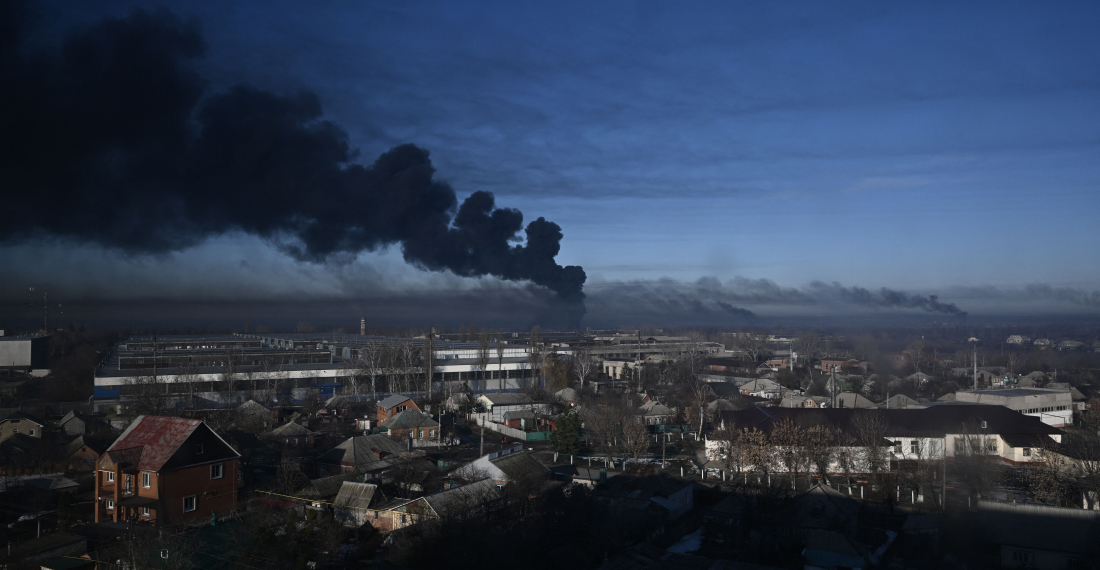The prominent human rights organisation, Amnesty International, has accused Russia of indiscriminate attacks against civilians during its current invasion of Ukraine.
In its report, Amensty International says that, "the Russian invasion of Ukraine has been marked by indiscriminate attacks on civilian areas and strikes on protected objects such as hospitals.
Amnesty International said today, after documenting three incidents that it believes to have killed at least six civilians and injured at least 12 more. Indiscriminate attacks violate international humanitarian law (the laws of war) and can constitute war crimes.
“The Russian military has shown a blatant disregard for civilian lives by using ballistic missiles and other explosive weapons with wide area effects in densely populated areas. Some of these attacks may be war crimes. The Russian government, which falsely claims to use only precision-guided weapons, should take responsibility for these acts,” said Agnès Callamard, Amnesty International’s Secretary General.
The Russian military has shown a blatant disregard for civilian lives by using ballistic missiles and other explosive weapons with wide area effects in densely populated areas
Agnès Callamard, Amnesty International’s Secretary General
“The Russian troops should immediately stop carrying out indiscriminate attacks in violation of the laws of war. The continuation of the use of ballistic missiles and other inaccurate explosive weapons causing civilian deaths and injuries is inexcusable.”
Indiscriminate attacks
Amnesty International’s Crisis Evidence Lab analyzed digital evidence—including photos, videos and satellite imagery— of three such attacks carried out in the early hours of the Russian invasion of Ukraine on 24 February. The attacks occurred in Vuhledar, Kharkiv and Uman.
Amnesty International’s Crisis Evidence Lab analyzed digital evidence—including photos, videos and satellite imagery— of three such attacks carried out in the early hours of the Russian invasion of Ukraine on 24 February
In the deadliest strike documented by Amnesty International, at approximately 10.30 am local time, a ballistic missile struck near a hospital building in Vuhledar, in Donetsk region, eastern Ukraine, killing four civilians and wounding ten more. According to a local source who spoke to Amnesty International researchers, two women and two men were killed, and six healthcare workers were among the injured. Analyzing photos of the weapon scrap linked to the incident, Amnesty International’s weapons investigator determined that a 9M79 Tochka ballistic missile was used in the attack. These weapons are extremely inaccurate, regularly missing their targets by half a kilometre or more and should never be used in populated areas.
Another of the attacks was carried out at approximately 8 am local time, in the Kharkiv region, northeastern Ukraine. The likely target was the nearby Chuhuiv Air Base, but instead Russian weapon struck a residential block, causing extensive fire damage and apparently killing at least one male civilian and injuring at least two civilian women. A single large crater in the ground between apartment buildings indicates the weapon was most likely a single large missile or rocket.
In another attack occurring at 7 am on the 24 February in Uman, Cherkasy region, a civilian man appears to have been killed by a strike that also damaged a nearby restaurant.
UN General Assembly must hold an emergency meeting
If the Security Council is paralyzed through veto, it is up to the entire membership to step up
Agnès Callamard, Amnesty International’s Secretary General
Amnesty International’s verification of the use of indiscriminate attacks by the Russian forces in their military operations in Ukraine, provides irrefutable evidence of violations of international humanitarian law and international human rights law.
The United Nations Security Council (UNSC) is scheduled to meet later today to discuss the situation and Russia will most likely veto any resolution put forward by other member states. Therefore, Amnesty International is calling for an emergency meeting of the United Nations General Assembly.
“If the Security Council is paralyzed through veto, it is up to the entire membership to step up,” said Agnès Callamard.
“We call on the UN General Assembly to meet in an emergency session and adopt a resolution denouncing Russia unlawful attack and calling for an end to all violations of humanitarian law and human rights. The lives, safety and well-being of millions of civilians is at stake.”






